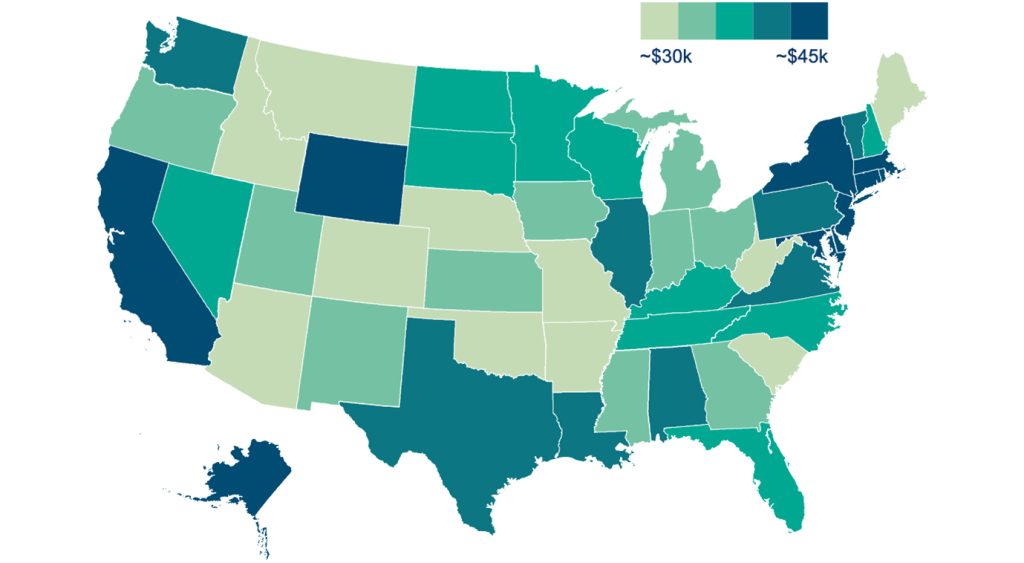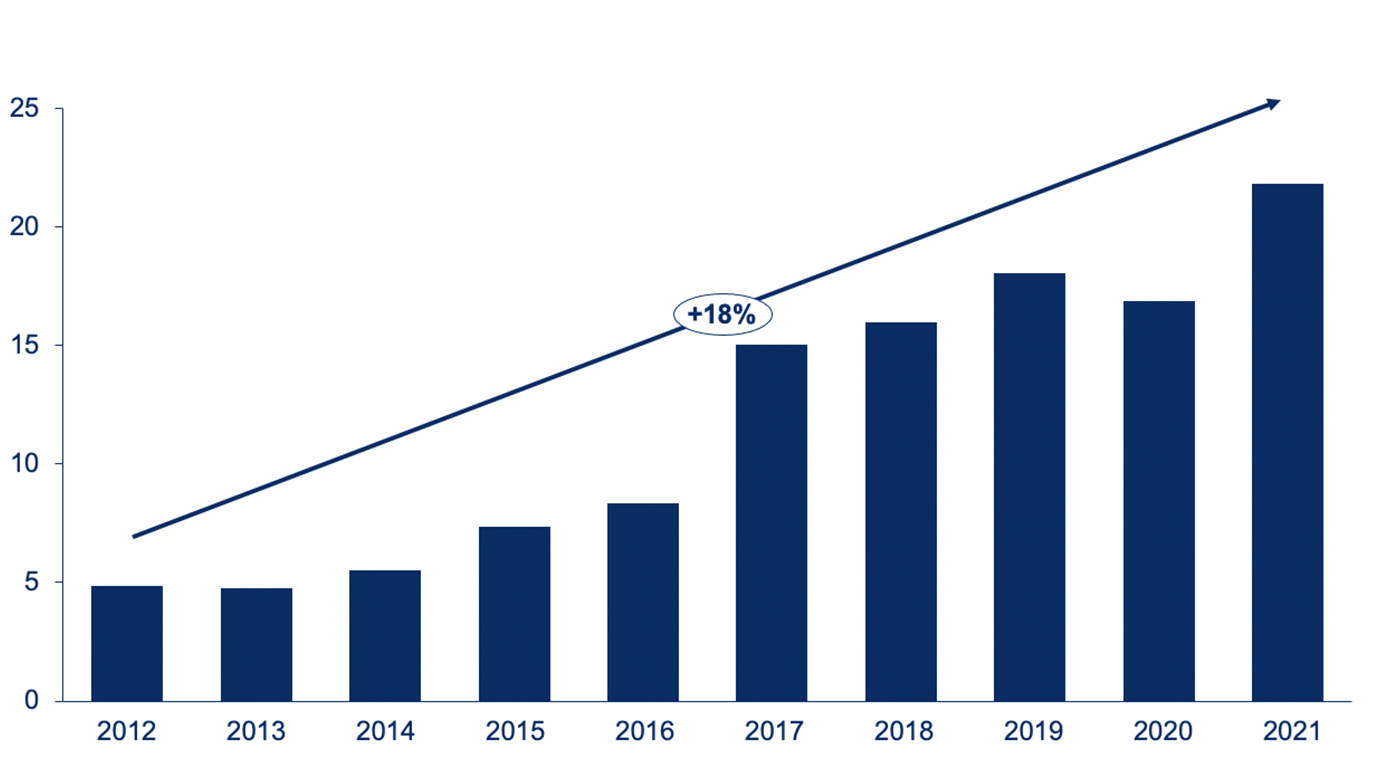
Insight, published 2022-07-01
Sector: Teacher Accreditation & Recruitment
Next Moves: Strengthening the US Teacher Workforce
Together with its partners, Bertelsmann Education Group is actively developing innovative approaches to growing the US teacher workforce to better serve the needs of schools, students, and the communities where they live.
US Classrooms Are Coming Up Short
There is a staffing crisis in US public schools. Across the country, states and districts struggle to fill teaching positions in primary and secondary classrooms alike. Each year, more than 210,000 teachers are leaving their profession, with more than 300,000 teaching positions vacant at any given time in school districts countrywide. Just last November, in a Teachers Pay Teachers survey, nearly 48% of respondents were considering changing jobs.

Teacher shortages significantly undermine student achievement by impeding the critical effectiveness of the teacher-student relationship and disrupting productive learning environments. In addition to high teacher attrition, other factors driving teacher shortages include the high cost of university-based alternative accreditation, ineffective teacher recruitment, tighter teacher-student ratio targets and increasing student enrollment.
Teacher shortages are not experienced the same across the country with some states more affected than others. But most states have shortages in qualified teaching professionals in subjects such as mathematics and science as well as educational sub-categories including special education, bilingual education, and English language development.
Particularly hard hit are schools in high-poverty communities in urban and rural settings. Such historic education inequities persist as lower resourced school districts tend to have substantially higher teacher vacancy and turn-over rates compared to more affluent districts.
Two of the challenges contributing to on-going teacher shortages stand out for particular attention from community and education leadership: The decline of enrollment in teacher accreditation programs and ineffective teacher recruitment approaches.
Hindering Teacher Accreditation: The High Cost of University-Based Training
In the US, there are three paths to teacher accreditation: A 4-year bachelor’s degree in education from a traditional college or university; university-based alternative accreditation for candidates holding a non-education bachelor’s degree; and finally, non-university affiliated alternative accreditation for candidates holding a non-education bachelor’s degree.
With a starting teacher salary in the US averaging approximately USD 39k annually, the cost of university-based alternative accreditation (USD 11K to USD 20k) makes the cost relative to earning potential of this option less attractive for many candidates. While a relatively new option, non-university-based teaching accreditation can, in contrast, be obtained for, on average, less than USD 5K.

Ineffective Teacher Recruitment Approaches
Another key contributor to shortages is the lack of proactive and strategic approaches to teacher recruitment and pipeline development. With little time or dedicated budget, few schools and districts can actively recruit staff or communicate the mutually potential benefits of a career in education. In most cases, application processes are left entirely to the initiative of the teacher candidate. Furthermore, little or no outreach efforts are made to recruit local community members who can leverage a “home turf” advantage in local district schools.

The high cost of university-based accreditation relative to earning potential is an obstacle for many people who would otherwise aspire to a career in teaching. And as many school systems are unable to develop and implement ambitious and streamlined approaches to teacher recruitment and pipeline development, they are unable to communicate the value a teaching career can have in the community.
Innovative Solutions
With the supply/demand imbalance of certified teachers in the US expected to continue, many state teacher accreditation programs are undergoing a shift toward non-university providers with enrollment growing nationally at approximately 23% compared to the 1% growth in traditional university-based enrollment. This innovative model can have a significant impact on school staff shortages at a much lower financial commitment and risk for prospective teachers.

In collaboration with US-based education leaders, Bertelsmann Education Group is seeking to target this alternative non-university-based accreditation segment with unique and comprehensive content and support services that accompany teacher candidates throughout their training and into a rewarding career.
By expanding its relationships with school districts and teacher networks, the partnership will also provide sophisticated multi-channel digital approaches to streamlined recruitment that actively pursues and places highly qualified teachers.
An additional core element of the program is the direct connection between the accreditation program and a teaching position at a school district close to the candidate’s community.

A career in teaching is among the most important contributions one can make to their community. With the aim of developing and strengthening teacher pipelines across the US, the Bertelsmann Education Group looks forward to this innovative program to support teacher candidates with a holistic approach to accreditation and help local school districts with advanced placement capabilities.

